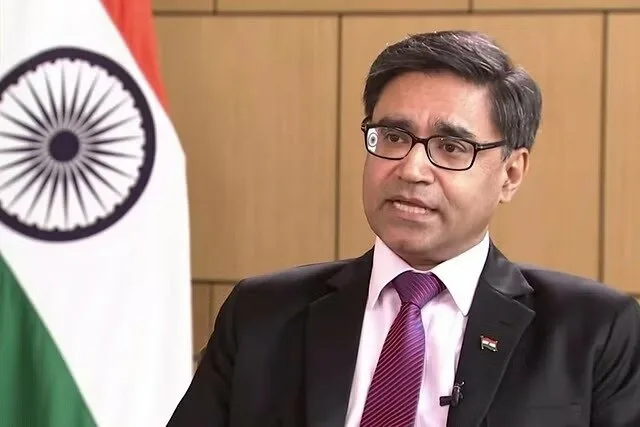
Foreign Secretary Vikram Misri is set to visit Beijing for a two-day trip starting January 26, as India and China continue efforts to normalise their strained relationship following border tensions that began in 2020. This visit marks the second high-level engagement between the two nations within two months, following National Security Adviser (NSA) Ajit Doval’s trip to Beijing in December. During Doval’s visit, he engaged in discussions with Chinese Foreign Minister Wang Yi under the Special Representatives (SR) framework, focusing on the boundary dispute. Misri’s visit aims to further bilateral discussions under the Foreign Secretary-Vice Minister mechanism, an initiative reinstated after the October 2024 meeting between Prime Minister Narendra Modi and President Xi Jinping in Russia.
The resumption of the Foreign Secretary-Vice Minister mechanism aligns with the leadership-level decision to advance cooperation across political, economic, and people-to-people sectors. The October 2024 Modi-Xi meeting in Kazan laid the groundwork for restoring bilateral ties and led to the finalization of a disengagement pact for Depsang and Demchok, key friction points in eastern Ladakh. Both sides have since taken incremental steps to foster mutual trust and maintain peace along the border. During the SR talks, India advocated for a fair and acceptable resolution to the boundary dispute while emphasizing the importance of ensuring stability in border areas to facilitate further dialogue.
India and China are now focusing on expanding cooperation beyond border issues by exploring measures such as resuming the Kailash Mansarovar Yatra, sharing river data, and boosting border trade. External Affairs Minister S. Jaishankar recently highlighted the need for a long-term perspective in managing ties, noting that India faces unique challenges in balancing its relationship with China amid their simultaneous rise. Both nations are now expected to navigate their differences strategically, implementing the common understanding reached by their leaders to achieve sustained progress in bilateral relations.

Post Your Comments